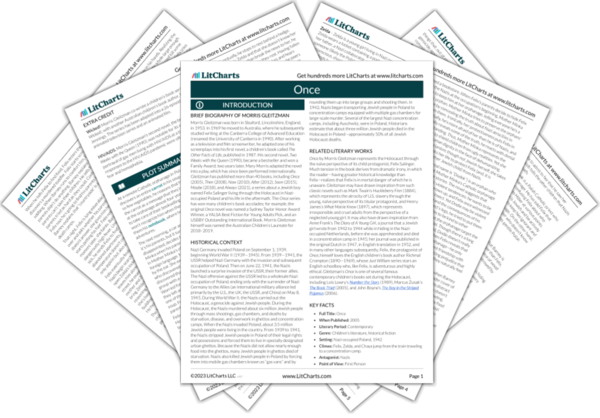The children’s wishes illustrate both their innocence and the horrors that antisemitic violence have wreaked on their lives. The children aren’t wishing for their parents because their parents are likely dead, so the fact that two boys wish for their dogs implies that Nazis killed their pets also. The toddler wishes for a carrot, suggesting that his imaginative horizons have narrowed to food due to hunger. Chaya makes a funny joke about her name—but in so doing, she avoids making a wish at all, suggesting she is no longer comfortable hoping for things given the situation in Nazi-occupied Poland. Finally, when Chaya suggests that Moshe would like “the rest of [his] house,” it implies that the wood Moshe constantly chews is part of a family dwelling the Nazis destroyed.


